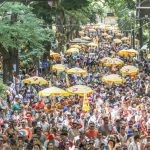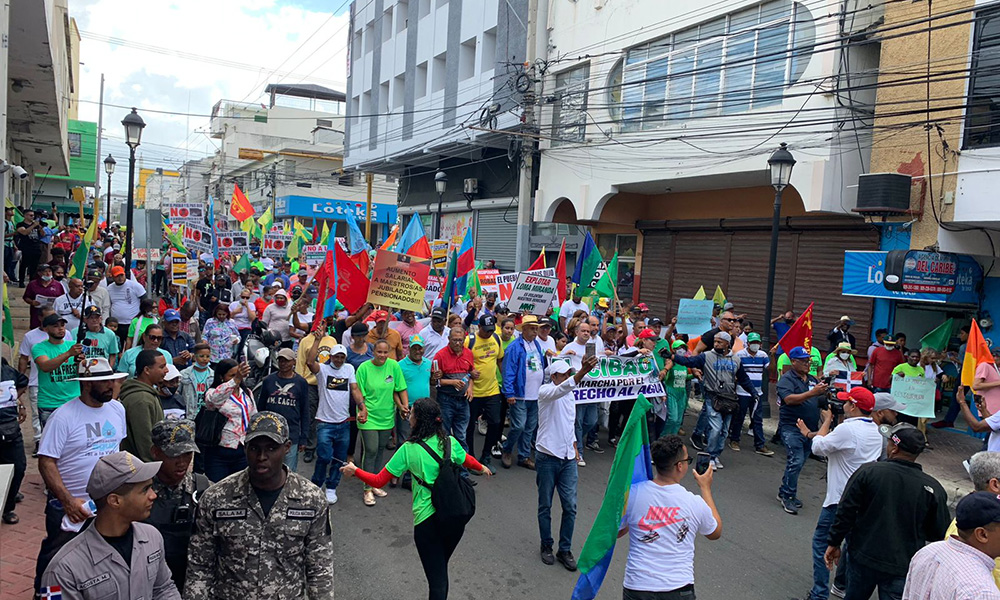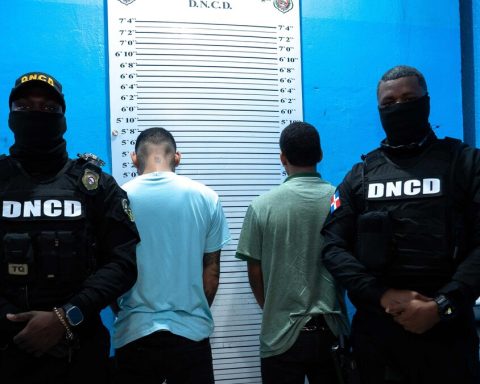The terrifying inflation figure for February –4.7% overall, with the aggravating circumstance that the food item marked 7.5%– confirmed what everyone suspected in Argentina: that the rise in prices ceased to be an economic fact to become a political crisis.
Unlike the debates surrounding the agreement with the International Monetary Fund (IMF) and the rumors about how serious the fight between Alberto Fernández and Cristina Kirchner is –issues that are only followed by the “microclimate” of politicized minorities–, inflation is an issue that has the entire society on edge. And that, as the entire political class knows, it has the potential to make governments fail.
To make matters worse, at the end of the month the data on poverty and indigence will be releasedone of the moments in which the government already assumes as a bitter pill, because it will once again give the measure of the country’s social wound, with a projection of 40% of the population without their basic needs met.
It was this social alarm that motivated the government to give a blow and announce “a war against inflation.” The dramatic name chosen by Alberto Fernández makes it clear that the main objective was to change society’s expectations, just at a time when all forecasts are being revised upwards.
Surveys among economistslike the one carried out by the Central Bank, mark a projection of 55% for the year, but the analysts The most skeptical already speak openly of inflation above 60%. These are figures that leave the forecast of the economy minister very far, Martín Guzmán, who in the letter of intent with the IMF set a goal of 43% for the year and also intends that the unions take that figure as a reference for salary negotiations.
After the agreement with the IMF, the urgency of reversing expectations
Paradoxically, the government’s success in reaching an agreement with the Fund –and its laborious approval by Parliament– was one of the elements that added pressure to inflation. Because Guzmán promised to cut the state energy subsidy, which implies that there will be increases in public service rates, which will average 80%.
In addition, he promised to accelerate the pace of the dollar’s slide, in order to avoid the exchange delay, so that while last year the rate of devaluation averaged 1% per month, now it is around 3%.
As was already clear with the experience of macrismo, a simultaneous rise in rates, fuels and, in addition to the dollar, for an economy that already had an inflationary inertia, could be an explosive combo.
In addition, of course, the effect of the war in Europe is added, which caused the usual shock of change in relative prices. Argentina is a major exporter of soybeans, corn and wheat, and so international prices “infect” domestic prices. And as for imports, Argentina depends increasingly on the purchase of gas, so that it is impacted by the geopolitical change of the sanctions against Russia.
The truth is that, in some cases for being a producer, and in others for being an importer, the shock of international prices ended with the same effect: they fueled inflation.
The government’s urgency to change expectations also has another very specific foundation: all economists are forecasting that in March and April inflation will stall at the level of 5% per month, given that they will play against seasonal factors and the effect of the rise in public rates will begin to be fully felt.
The real anti-inflation package
The package of measures prepared by the government included many of the classic measures for these situations: increases in export withholdings on products such as oil and flour, creation of trust funds to subsidize the prices of vegetables and baked goods, maximum price agreements for the basic basket, adjustments to interest rates to withdraw currency from the market.
But, as economists already suspect, the real components of the anti-inflationary plan are those that are not announced, some so as not to irritate the IMF and others so as not to create political problems.
To begin with, whatIt was evident that the commitment to slide the price of the dollar at the same rate as the prices will not be fulfilled.. Officials know that this race feeds on itself and is potentially dangerous, so, against the IMF’s recommendation, they will once again use the classic instrument of the “exchange anchor”.
In fact, that change had already been insinuating itself: from December to February, against accumulated inflation of 12.9%, the slippage of the dollar was 7.4%. Which implies an “inflation in dollars” of 5% in just one quarter.
Another “unspeakable” mechanism to curb inflation is cutting wages, so that the increases are nominally lower than inflation. Of course, the government presents it as a “price and salary agreement”, for which it already has the wink of the industrial associations and the trade union centrals.
Minister Guzmán wants to generalize a salary increase guideline for the year that does not exceed 45% –that is, at least 10 points below the inflationary projection– with the promise that, in the event of an inflationary overshoot, an adjustment clause will be applied.
By the way, these adjustments are never applied all at once, but rather in several installments per year, which means that, even if the salary is equal to inflation “between ends” of the year, on the average there will be a loss of purchasing power.
Closing the monetary tap
But perhaps Guzmán’s biggest bet to curb inflation is the fiscal and monetary adjustment that he promised in the agreement with the Fund.
What economists of the orthodox line affirm is that, beyond the impact of “imported inflation”, what is driving prices today is the great monetary expansion that occurred at the end of last year, coinciding with the closing of the electoral campaign for the legislative
The popularly known Platita Plan implied that in the fourth quarter of 2021 money was issued to finance public spending for a volume greater than that which had been registered in the previous nine months.
Speaking of money, about 964,000 million Argentine pesos were poured into the market – which, at the official exchange rate, is equivalent to about US$ 10 billion. And, in terms of the monetary base, they implied an injection of 28%.
Given that there is a period of “delay” between this monetary expansion and its reflection in prices, the effect of that monetization of the economy is only now being perceived.
Minister Guzmán is confident that all this will be reversed. He has no room to think otherwise, given that he promised the IMF to cut the fiscal deficit by one point and, furthermore, to limit it to just 1% – that is, a third of last year’s level. Central Bank assistance to the Treasury to finance public spending.
Between memes and preventive increases
But of course, Argentina is in a hypersensitive moment from the political point of view, with the government coalition in fact fissured. And so the government does not want to exacerbate the differences with an announcement that sounds like a traditional adjustment. That’s why you advertise with much media exposure to the measures to persecute “speculators” and threatens companies with sanctions. A concession to his most radicalized members of Kirchnerism.
In any case, in these times it is not as easy as before to make this type of advertisement. Social networks have been cruel to the government, ridiculing memes and jokes about “the war” against inflation and ridiculing some of the measures that sound old.
Thus, videos from the 1970s have gone viral in which militants controlled in butcher shops that the maximum prices imposed during the last presidency of General Perón be respected.
And, much more worrying than the mockery on the networks, there is another effect that the government did not see coming: by announcing several days in advance that its “war” would begin, businessmen rushed into a wave of preventive remarks.
Thus, the leading companies in the food sector have already passed new price lists, which in the case of dairy products average increases of 10% and in farinaceous products such as noodles and cookies they reach 15%.
The war announced by Alberto Fernández has already begun with casualties on the official side. But, in reality, the biggest bet is to achieve, this week, union support so that the parity does not exceed the mark suggested by the government.
Meanwhile, in the streets, the postcard that most bothers Peronism continues to grow louder and more massive: the protest of the piquetero movements, which represent the unemployed and informal workers, who in the best of cases receive aid equivalent to half minimum wage, a sum that is equivalent to 25% of what is needed to be above the poverty line.

















